David Hubczenko
Adversarial Reinforcement Learning under Partial Observability in Software-Defined Networking
Feb 25, 2019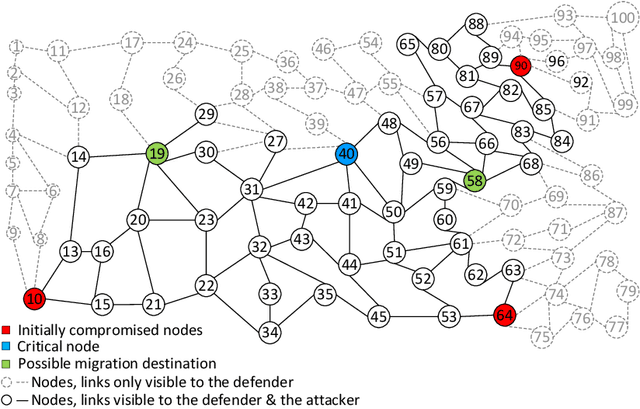

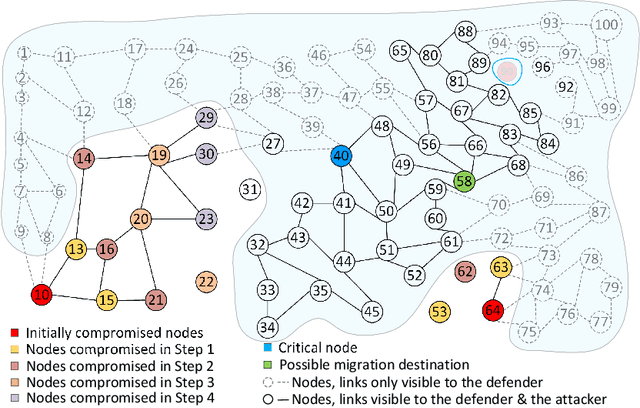
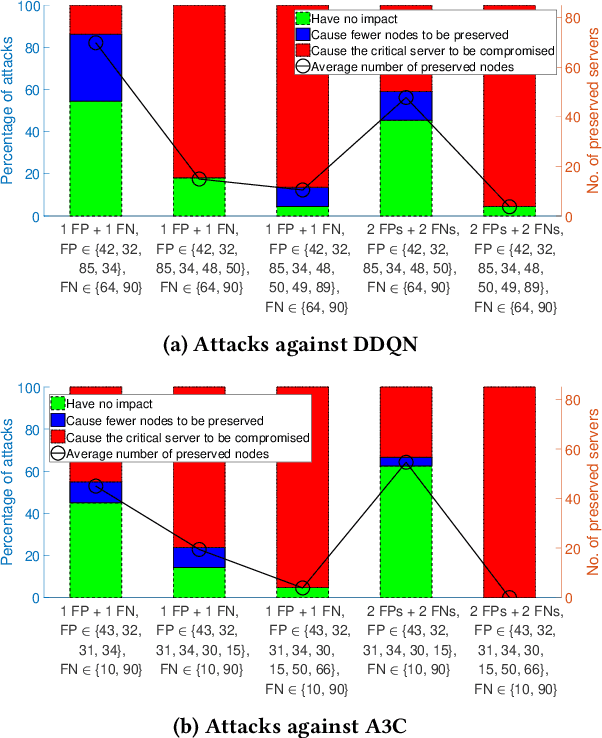
Abstract:Recent studies have demonstrated that reinforcement learning (RL) agents are susceptible to adversarial manipulation, similar to vulnerabilities previously demonstrated in the supervised setting. Accordingly focus has remained with computer vision, and full observability. This paper focuses on reinforcement learning in the context of autonomous defence in Software-Defined Networking (SDN). We demonstrate that causative attacks---attacks that target the training process---can poison RL agents even if the attacker only has partial observability of the environment. In addition, we propose an inversion defence method that aims to apply the opposite perturbation to that which an attacker might use to generate their adversarial samples. Our experimental results illustrate that the countermeasure can effectively reduce the impact of the causative attack, while not significantly affecting the training process in non-attack scenarios.
Reinforcement Learning for Autonomous Defence in Software-Defined Networking
Aug 17, 2018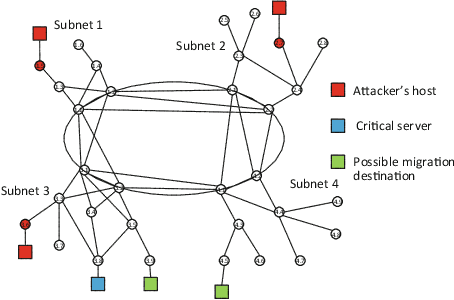

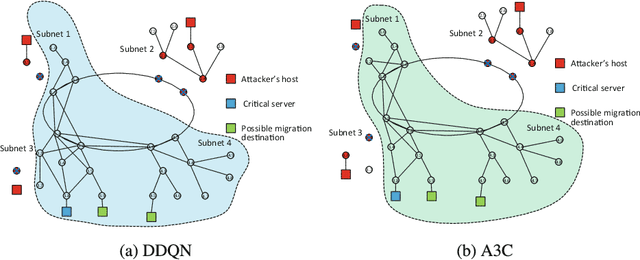

Abstract:Despite the successful application of machine learning (ML) in a wide range of domains, adaptability---the very property that makes machine learning desirable---can be exploited by adversaries to contaminate training and evade classification. In this paper, we investigate the feasibility of applying a specific class of machine learning algorithms, namely, reinforcement learning (RL) algorithms, for autonomous cyber defence in software-defined networking (SDN). In particular, we focus on how an RL agent reacts towards different forms of causative attacks that poison its training process, including indiscriminate and targeted, white-box and black-box attacks. In addition, we also study the impact of the attack timing, and explore potential countermeasures such as adversarial training.
 Add to Chrome
Add to Chrome Add to Firefox
Add to Firefox Add to Edge
Add to Edge